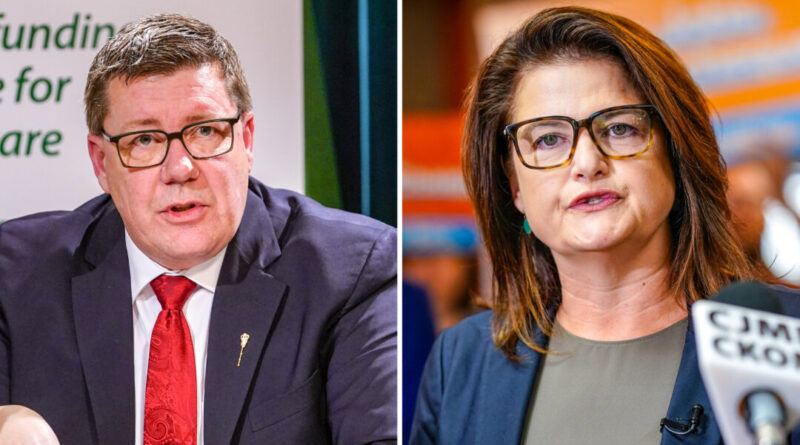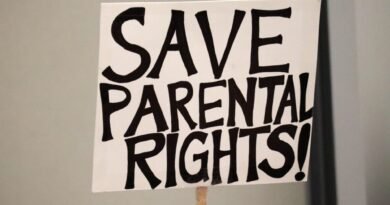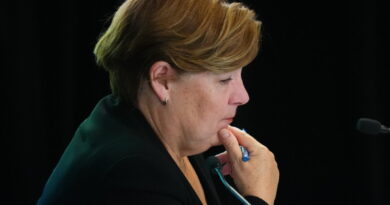Saskatchewan joins fierce election race
Saskatchewan’s provincial election promises to be the most hotly contested in two decades as the long-governing Saskatchewan Party faces challenges from the NDP and several newer parties on the political right.
Oct. 1
.
His plan calls for raising the personal income tax exemption, spousal exemption, child exemption, and seniors supplement by $500 each year for the next four years—all in addition to automatic increases related to inflation.
“When combined with our government’s indexation of personal tax rates, a family of four will save more than $3,400 and a senior couple will save more than $3,100 over the next four years,” Moe said in an Oct. 1 press release.
press release.
tax on gas and diesel for six months and remove the provincial sales tax from kids’ clothing and ready-to-eat grocery items while not raising taxes.
stopped collecting carbon levies
on home heating bills in January this year in defiance of Ottawa.
$182 million
surplus, the province reported in June. The current fiscal year’s first-quarter results increased the
2024–25 forecast deficit to $354 million,
up $80.6 million from the 2024–25 budget’s forecast of $273.2 million. Budget
spending includes $2.2 billion in school operating funding, up $180 million from last year, and $7.6 billion in health funding, up $726 million from last year, Finance Minister Donna Harpauer said in her
budget address in March.
More Parties
The Saskatchewan Party was
formed
in 1997 by four Progressive Conservative and four Liberal MLAs and has ruled in majority governments since 2007. In the
2020 election, out of 61 seats in the provincial legislative assembly, Moe’s party took 48 seats while the NDP won the remaining 13.
independence for most of Western Canada, finished at a distant third in the popular vote while placing second in four ridings in 2020.
The Buffalo Party and legacy Progressive Conservatives
discussed joining forces last month but talks fell through. Both parties will run candidates in the upcoming election, as will the new SUP.
22 of the party’s 48 MLAs
elected in 2020 are not seeking re-election. The latest Saskatchewan
p
olitical polling by Insightrix Research for CTV, from September, suggests that the
NDP leads in Regina and Saskatoon while the Sask. Party is ahead in
areas beyond the province’s two largest cities. Polling aggregator
338Canada.com
projects the Sask. Party will win 39 seats and the NDP will win 22.
Main Issues
Among the most heated issues ahead of the election between the governing party and the NDP is
Bi
ll 137, the
Parents’ Bill of Rights.
The legislation also requires that parents be made aware of
other important aspects
of their child’s school participation.
NDP
,
unions
, and some advocates remain opposed to the legislation. Saskatchewan’s Court of Appeal
on Sept. 24 concluded a two-day hearing in a
legal challenge against the bill issued by
UR Pride, a peer-to-peer support group for LGBT individuals. The court reserved its decision to a future unspecified date
.
Source link
- Bloc Motion to Advance Seniors’ Benefits Bill Passes Despite Lack of Liberal Support
- No, One America News Network Is Not The Answer




